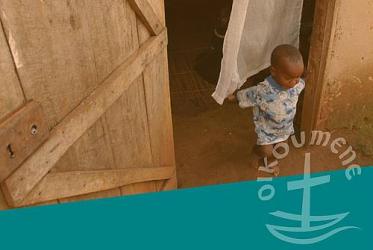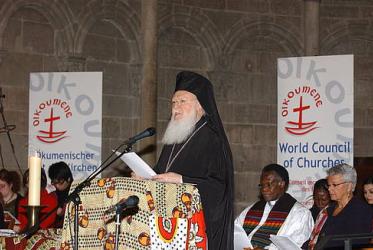Mostrando 13461 - 13480 de 15759
19 Febrero 2008
A Dame of ecumenism
19 Febrero 2008
Let us pray
19 Febrero 2008
HIV/AIDS: "We can't be silent"
19 Febrero 2008
Integración de iglesias rioplatenses
19 Febrero 2008
Comité Central examina validez de procesos electorales
19 Febrero 2008
Totem kehrt zurück in den Schoß der Erde
18 Febrero 2008
Ceremony at Bossey
18 Febrero 2008
Ambassadors of hope
18 Febrero 2008
Service celebrates WCC's 60th anniversary
18 Febrero 2008
WCC appoints search committee for new general secretary
18 Febrero 2008
Welcoming the Lao Evangelical Church
18 Febrero 2008
Iglesias capacitadas para enfrentar el VIH/SIDA
18 Febrero 2008
CMI designa comité de selección de nuevo secretario general
18 Febrero 2008
Catedral de Saint-Pierre acoge celebración del CMI
18 Febrero 2008
Contra impunidad de crímenes económicos
18 Febrero 2008







